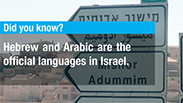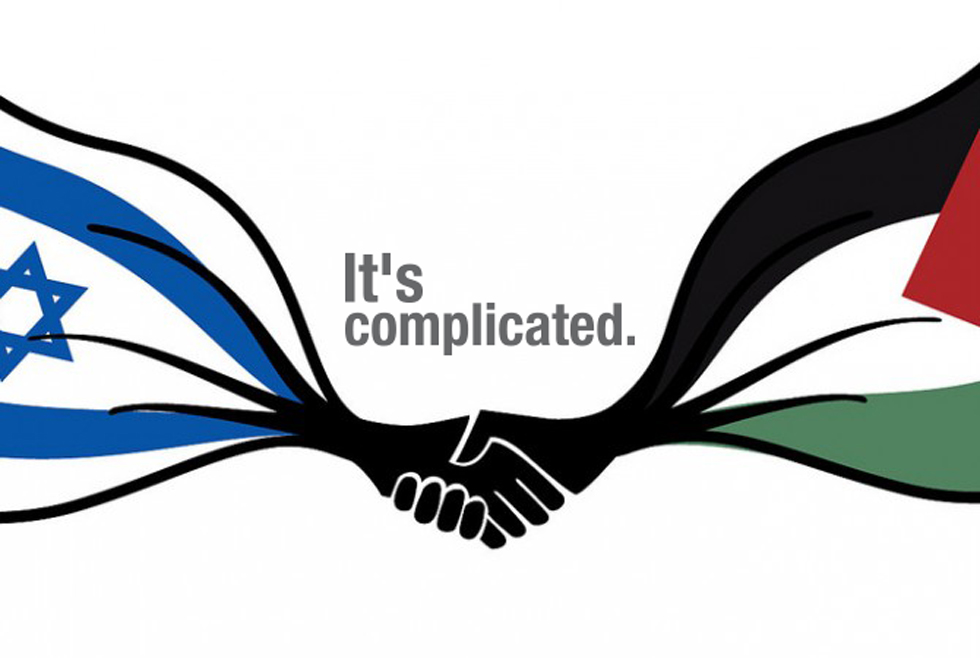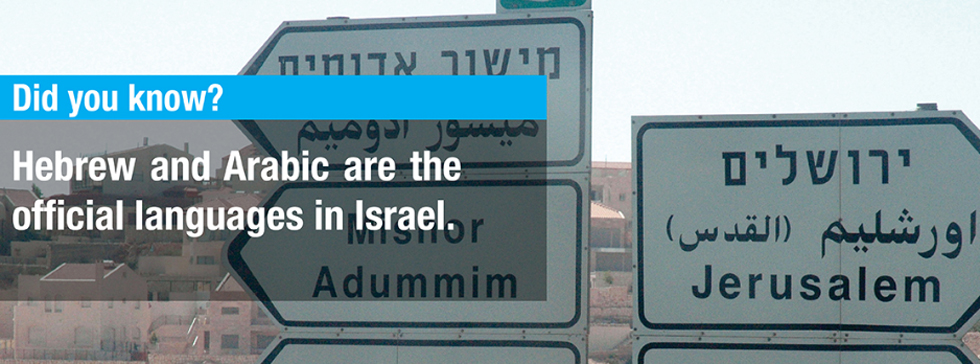
Israeli students fight BDS using Google
Every month, Google sees an average of 165,000 searches for the term 'BDS' and 8,100 for 'boycott Israel.' Four Israelis are trying to provide a more balanced perspective with a website titled 'It’s Complicated.'
Four Israeli students have found a creative way to fight the Boycott, Divestment and Sanctions Movement (BDS) online. They created a “rogue” website that appears to support the boycott against Israel, but in fact provides pro-Israel content.
The website, boycott-israel.net, seeks to reach anyone who tries to search Google for “boycott Israel,” expecting to find websites against the Jewish state. But those readers will be disappointed, as instead of articles calling to boycott Israel, they will find content presenting the complexity of the Israeli-Palestinian conflict in an effort to provide an entirely different viewpoint to what is often presented in the international media.
Google sees an average of 165,000 hits a month for the term “BDS” and 8,100 for “boycott Israel.” When searching these terms, the first page of results currently doesn't produce even a single pro-Israel website, showing those looking for information on the subject only anti-Israel content.
The students are working to get their website onto the first search results page on Google, using the keywords in question to generate more traffic, and thus increase exposure to a different side of the conflict.
“The site has pro-Israel articles collected or written by us, through which we introduce the complex relationship between Israel and the Palestinians in an effort to show all sides of the conflict to those who don’t know anything or don’t know enough about it and don’t live in Israel,” explains Avihay, who serves as the project's website promoter.
The site aims to promote a unique agenda, presented under the title “It’s Complicated.”
Hila Efrati, one of the creators of the site, explains, “We chose this slogan as a form of guerilla marketing. It’s clear to us that if we had a pro-Israel name, the site would get far less traffic and we would lose out on the readers we want to influence.”
The idea sprung from a small study conducted by Avihay seeking to understand how dominant the BDS movement is online.
“When searching for the terms ‘BDS’ and ‘boycott Israel’ on Google, all of the sites that appear on the first results page are anti-Israel, and most of them tell lies about the Israeli-Palestinian conflict and disseminate inaccurate information, which is harmful for Israel. The fact there are millions of people who are seeing this content every year through Google is troubling, and so we decided to act,” he explains.
The four hope to continue getting support from other websites and from website promoters.
“One of the important factors in promoting the website on Google is the amount of other sites linking to it and the quality of those links,” explains Avihay. “If we are to get to the first page and reach the target audience, we need help. At the end of the day, if Israel and Jews around the world help us, we can more easily achieve our goal. So we call on as many site owners as possible to support us.”
Each of the four students comes from a different background: Sharon Hess is an immigrant from Canada; Avihay is a career soldier; Efrati is a formerly observant Jew; and Aviv Sarel worked as an assistant to MK Michael Oren when he served as Israel’s Ambassador to the US.
Hess completed her first degree in Communications studies at Concordia University in Montreal 40 years ago, and then moved to Israel shortly after that. “We put together a group of four people, each from a completely different background, from all ends of the political spectrum, to show the world the complexity of the reality we live in,” she says.
Sarel adds, “What brought us together is the understanding that the world believes we have given up on peace. Therefore, to better represent Israel, all we are left with is to defend and justify its actions with the help of words. We created a platform that puts a spotlight on the conflict and the difficult reality that exists between the two peoples, whose relationship is complicated, complex, and unfair on both sides. We’re not just presenting Israel’s colorful beaches, its openness and democracy, its vistas and home-grown cherry tomatoes—we’re also showing the difficult reality, which is colored in many shades of gray.”
Efrati concludes that “the Israeli-Palestinian conflict is not covered well (in the media). It’s clear to us that Israel doesn’t always act in a just manner, but on the other hand we can’t always act in a just manner, and what is a just manner anyway? It’s not right to bomb houses in Gaza, but it’s also not right to be killed while having dinner with your family.”













